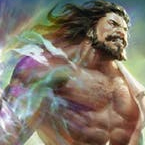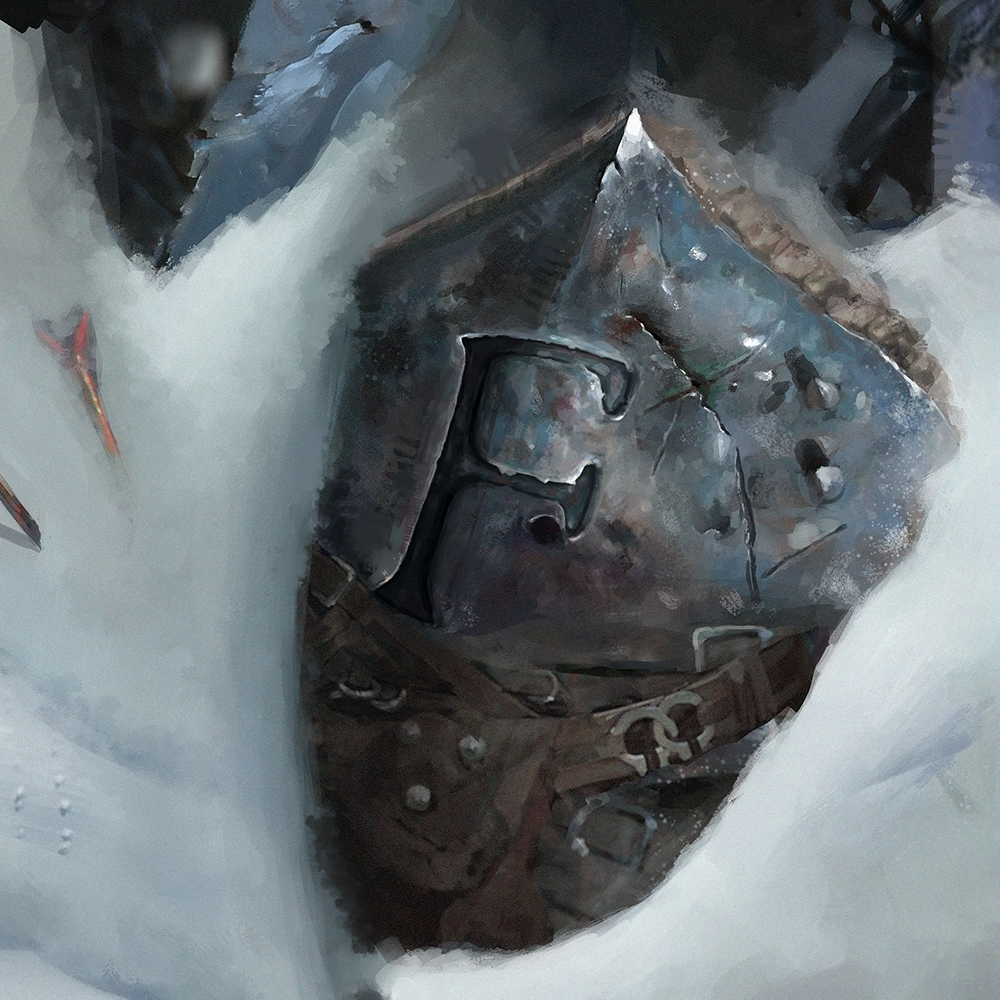The streaming coverage of ProTour: New Jersey was dominated by one 'sidequest', as Yuki Lee Bender attempted an epic run to the top with Lexi amid a field of Chanes, Prisms, and Starvos. At the same time, Alexander Vore was taking Kano to the Top 8 with an undefeated run. Underdog decks make for compelling stories- and once the games are played, the stories are all we have.
I've heard many people bemoan the fact that their favorite hero doesn't have the same competitive prospects as others. As a day one Azalea player, I've felt that: you have to work harder to achieve the same things other heroes do naturally, if you're capable of reaching their benchmarks at all! TCGs are the very pinnacle of an asymmetrical game experience, and every hero follows their own path. Ultimately, envy of what others have will only undermine your own journey.
If you've put time and energy into a hero outside the mainstream meta, you don't have to give that up the moment you enter a major competitive event. In fact, you may be putting yourself at a disadvantage! It's critical that you realize the strengths that you have within your main class- and the effects of experience, skill, and alignment on your competitive prospects.
Understanding The Underdog
Let's first take a moment to separate the romanticized underdog from the IRL underdog. You do not have a team of script writers behind you ensuring that every turn of the plot goes your way; there's no "heart of the cards" behind your draws. Being an underdog, by definition, means you're beginning at a disadvantage. Don't take on the role unnecessarily!
That said, there's more than one way to position yourself as an underdog- and often, your underdog role is inherent to who you are and your experience! If I sign up for a Road to Nationals event tomorrow, I'm going in as an underdog because:
- I've had no major FAB tournament experience,
- I come from a small FAB community without a dedicated testing team, and
- I'm going to be playing Azalea.
I can only change one of those things; and if I swap out my tried-and-true Azalea deck for a Prism Aura build I've not gotten the reps in playing, that's just trading one underdog attribute for another.
Let's keep running with that example. Let's say I'm a week away from RtN. I'm reading the Discords and everyone is talking about their bad matchups into Aura Prism. I'm lacking confidence because this is my first big event. I think, "I should bring a deck with a strong reputation." So I swap decks, play a couple games against my locals (which I win), and trot off to RtN with my own copy of the top deck in the format.
What's wrong with that story?
Well first off, I'm testing my deck against my small-community opponents, the same guys I was probably beating with my well-honed Azalea deck that, up until a week ago, I was prepared to take to RtN. I know these guys. I know their decks, their playstyles, and their weaknesses. I didn't need to fall back on my experience with the deck- I had experience with my enemies! This is The Art of War stuff right here.
"Know thy enemy and know yourself; in a hundred battles, you will never be defeated. When you are ignorant of the enemy but know yourself, your chances of winning or losing are equal. If ignorant both of your enemy and of yourself, you are sure to be defeated in every battle." – Sun Tzu
...I can't say it better than that. Here's problem number two. You cannot expect that a strong deck is going to more than make up for your lack of experience with it! You are an essential part of your tournament play! And if you think that you can sit down against an experienced Prism player and play that deck better than they do, on a fraction of their experience, then you are buying into the underdog narrative and not the underdog strategy.
Here's what separates a Rocky from a Rookie:
- You worked hard to get to where you are.
- You understand that the odds are against you, but
- You prepared for that, and have something unexpected to even the odds.
This is the underdog advantage.
Attacking from the Side
Many people describe the meta in tiers, but that only reinforces the notion that an unlikely hero is an inferior hero. Instead, let's talk about it as Champions and Challengers.
A Champion is a proven deck that we know will show up in force at a tournament. (There are often multiple Champions in any given meta, but for the sake of simple illustration, let's focus on a single-champion arrangement.) During Everfest, Starvo was the perfect example of a Champion.
Players who run Champion decks often have a presumption of success- but their success is anything but assured! Champions have the unenviable position of facing mirror matches frequently; mirror matches are both extremely skill-testing and extremely luck-testing. If a tournament has 64 players, and 32 are bringing the Champion, then at least 24 of those Champions aren't going to make the Top 8.
You may have seen this represented statistically as 'conversion rate': how frequently does a hero appearing in a tournament 'convert' into a Top 8/tournament win.
The inverse of this role is that of a Challenger. A Challenger is a hero who has been chosen based on the belief that they can defeat the Champion. A Challenger is counting on the meta turning out exactly as it's predicted to, because they've honed their deck to answer and counter the meta. Unlike a Champion, a Challenger is not defined by the community. It is a role taken on by the pilot of the deck, and it can be absolutely any hero.
The above example was orchestrated for clarity; often, there are multiple Champions in a meta, and Challenger decks can themselves become Champions (even simultaneously!) if they become expected Challengers worthy of targeting themselves. The Everfest meta eventually developed into precisely that: a Prism>Starvo>Viserai>Prism triangle that proved very difficult to crack.
Underdogs are Challengers. Always. And any underdog worth their salt will have carefully considered the opposition and found ways that they can uniquely attack its Champion position. Often these are vulnerabilities that the Champion has left open, assuming they would not have to face those who would exploit them. You will prove them wrong.
The Unknown
At this point in the game, we've got a card pool 7 sets deep. There are many cards that players have only a passing familiarity with. If you flip a Trap in your arsenal, 9 times out of 10 your opponent will turn that card to read it.
Take full advantage of your unconventional cards- especially when there's an element of surprise to be utilized! If your opponent doesn't know that you have an attack reaction in your card pool, they won't block anticipating one. And if they haven't seen everything that Azalea can do from a 1-card hand, they won't think you a threat as they respond to your opening play.
Especially at higher levels of competitive play, mistakes matter. And when you're an unknown quantity, you can count on your opponent to make mistakes: playing into your strategies, blocking incorrectly, and holding onto their full hand at the wrong time. Ever seen a player go off on a turn where the first attack went unblocked- and blocking it would have undermined everything that came after? That's what we're after!
Be Open to Anything*
In this article, I'm encouraging you to stand by your hero. But the same isn't true for your decklist. Identify the core of your strategy; then explore the cards available to you for counters and silver bullets. You may find that cards you'd previously written off look better in the light of a new meta. Or that shifting your pitch curve answers the challenges posed by the current Champion. Generics often provide useful tools that can push your class cards past their natural limits.
That said, remember what your hero is good at, and why you were drawn to them in the first place. There is a breaking point in 'flexing your deck' where you are no longer following your own identity but instead acting as a cheap imitation of another hero. That's a surefire way to fail in your attempt to infiltrate the meta.
Your Moment to Shine
The siren's song of the underdog is hard to resist, but dreams often distract from harsh realities. For any chosen hero- even those considered conventionally competitive- there are good and bad metas to play them in. And there's little to gain from forcing a hero into a desperately unfavorable field.
The fledgling Uprising meta has thus far shown a disposition toward Dromai. Whether she ends up becoming a truly worthy Champion remains to be seen- but for now, you can expect to run into her often in tournament play. Dromai is an Illusionist; as such, now is not the time to bring a deck without 6s. Dromai builds a board state that often requires multiple attacks to both control her development and push damage toward your victory; now is not the time for a deck without go again options. Taken together: it may not be Azalea's moment to shine.
And it's important to recognize that. When it's not right, you can't force it. Is this when you should switch to a Champion deck?
Not without considering what your time with the underdog has taught you.
At this point, the game supports 17 CC heroes (Starvo and Chane are no longer CC-eligible). Among those, you will find many overlaps in strategies. These are opportunities to transfer your skills to another deck. The disruption and dominate of Azalea's attacks, for example, appear in Bravo's cards as well. The low-cost 'play off a red' strategy is supported by certain Briar builds and both the Draconic heroes. And if it's just about shooting arrows, Lexi is probably in a better position to challenge Dromai.
Whoever you main, odds are someone else is doing similar things. It's much easier to pick up a new deck when you have existing framework to fit it to.
The Best at the Worst
At the end of the day, it's worth asking yourself, "What am I really looking to get out of this tournament?" And be realistic about your chances. If your goal is 'to win it all', and you're not basing that on recent near-misses, you probably are going to walk away disappointed. If it's fame you're after, or even that feeling of 'being the best' or 'being your best', you may find it by excelling at your unusual hero. Ethan Van Sant is a legend in the FAB community for his maining Levia- and while he now has Living Legend points to show for it, he made his name well before he had a tournament win to show for it.
So know yourself. What motivates you? What inspires you? Why are you playing this game? When you walk away from a tournament, do you want the crown or do you want the story?
Do you come as a conqueror or a bard?
Afternoon Nap; Midnight Stroll; Morning Routine by Ghostrifter Official | Music promoted by Chosic | Creative Commons CC BY-SA 3.0







